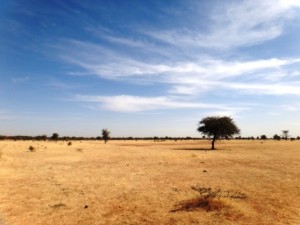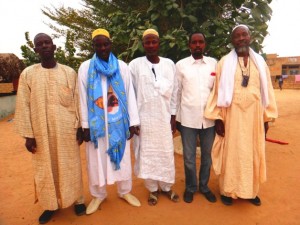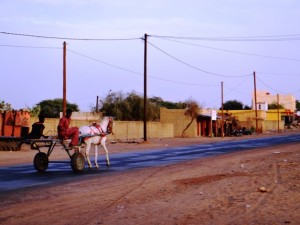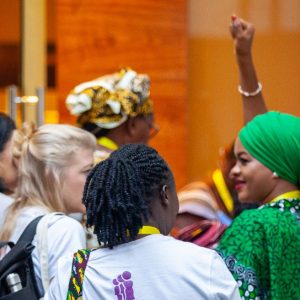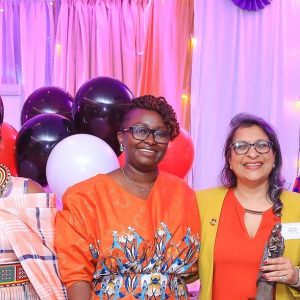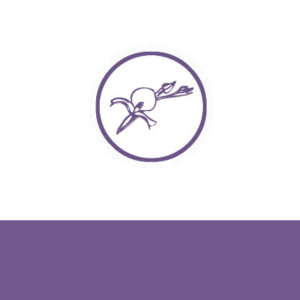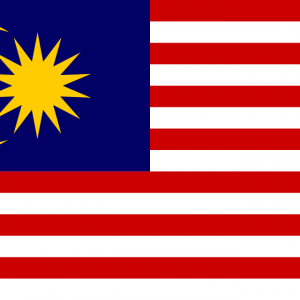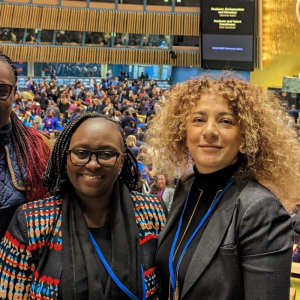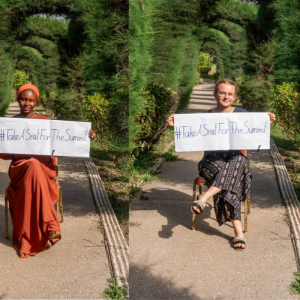Shadowing social mobilization efforts in the Fouta
Thanks to the Orchid Project, Tostan’s social mobilization team has been hard at work in the Fouta, reaching out to communities and engaging them in conversations around the topic of female genital cutting (FGC) and other harmful traditional practices such as child/forced marriage. I had the opportunity to join in on the last few days of their tour of six communities in January. It was a great opportunity for me to visit a new region of Senegal, try my hand at the Pulaar language, and meet some people who are passionate about ending FGC.
Meeting the team
The social mobilization team working in the Fouta is a group of community members who have already participated in Tostan’s human rights-based education program, the Community Empowerment Program (CEP). Some of them have been working for almost ten years on mobilizing support for FGC abandonment, while others just recently finished CEP classes. Abou Ndiaye and Saidou Kane are the two newest members, learning on the ground from Abdarahmane Bâ and Abdoul Samba Sow who have been doing social mobilization for 8-10 years. They are also normally joined by one female team member, Mara Samba Diallo, who was home sick this time. Samba Diallo, the team supervisor, has been with Tostan for 20 years.
I met the social mobilization team in Aéré Lao, a town of about 32,000 people on the main road that travels from one end of the Fouta to the other by following the Senegal River that forms the border between Mauritania and Senegal. The trip from Dakar to Aéré Lao took 26 hours total using public transportation for an approximately 1,000 km roundtrip, one example of the physical but also at times cultural distances between the Fouta and Dakar. As soon as our shared car turned inland after following the Atlantic coast, the scenery immediately changed from the tall grasses, palm trees, and flowering bushes around Saint Louis to the dry flat land of the Fouta, broken up by gnarly winding trees and open rock quarries.
After a long day of travel, I was welcomed with a large dinner and a round of attaya, the traditional tea that is served in three rounds and is enjoyed with breakfast, lunch, and dinner. The team members were all too eager to start talking, and even that first evening, they started to share their own stories about their communities abandoning FGC and sharing that message with others.
Throughout my time with the team, I had the chance to interview each team member about their commitment to FGC abandonment and their motivation to do social mobilization. They all already participated in Tostan’s Community Empowerment Program and their communities have already publically declared their abandonment of FGC or are discussing it currently. It was great hearing about their views on the importance of social mobilization and on how they see the movement for nationwide FGC abandonment in Senegal.
Meeting the mayor of Aéré Lao
On Wednesday morning, after a breakfast of coffee and bread with a round of attaya to wake us all up, we hit the ground running. The day before, the team had visited Aéré Lao and met with community members in the neighborhood of Diambury. At that community meeting, the neighborhood decided that they were ready to abandon FGC and wanted to publically declare. Today the team had planned follow-up meetings with the mayor and two of his counselors.
We walked across town to the mayor’s office, and along the way the team members greeted everyone that passed by. Many they knew by name from their previous visits to the area. They soon started to introduce me by my Senegalese name Aida. When we finally reached the mayor’s office, the greetings continued at the front door and in the hallways as we made our way to the mayor’s office.
We gathered around the large conference table. It was a fairly large group – three team members and Samba Diallo; the mayor, Samba Li, and two of his counselors; and me and Akhousseynou Li, another Tostan supervisor in the area. After Abdarahmane Bâ opened the meeting with a prayer, Abdoul Samba Sow spoke on behalf of the team. He presented the team’s strategy of two days in each village or community – to meet the first day with the local authorities and other leaders, and the second day with the community at large.
The mayor was familiar with the government’s national action plan for total FGC abandonment by 2015. He explained: “I have made it my mission to share the necessary information with the population of Aéré Lao so that they may decide [to abandon FGC] for themselves before 2015.”
He also understood the role of social mobilization in this effort. “You [the social mobilization team] are messengers. You are not imposing anything. When you force it, people mount their defenses. They must be allowed to make the decision themselves.”
As we were heading out the door, the mayor stopped me to say how important Tostan is as a partner. “Akhousseynou Li [a Tostan supervisor in the area] is my brother, my friend, and my advisor,” the mayor said, and he regularly seeks his advice.
Story by Elke Schmidt
This blog is part of a series on the Social Mobilisation project that Orchid Project funds in support of Tostan’s long term Community Empowerment Programme. Social Mobilisation is focused on ensuring the acceleration of abandonment of FGC in Senegal. Teams of volunteers who have already abandoned FGC, called social mobilisation agents, visit and create dialogue with inter-connected communities on human rights and the negative consequences of FGC. Their work aims to spread the message of abandonment and encourage others to join them.
Social mobilisation agents are individual members of the community who have been inspired by their understanding that FGC is a harmful practices, and are eager to share their own experiences with others. Often, they are religious, traditional or community leaders who are widely respected and well-connected, active, influential participants.
You can find out more about Social Mobilisation by clicking here. If you would like to support this work, please click here.

